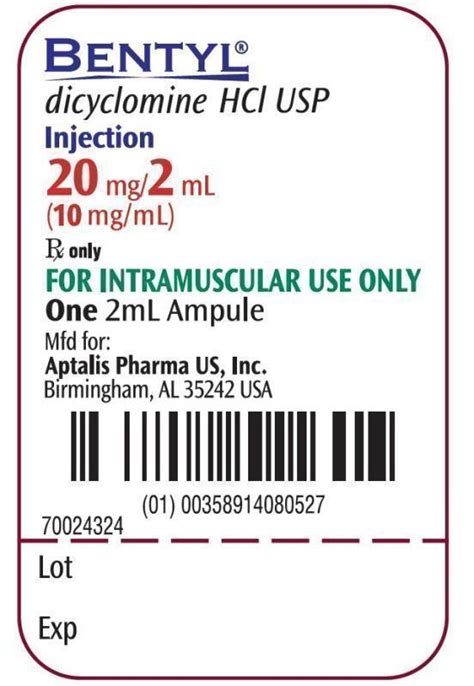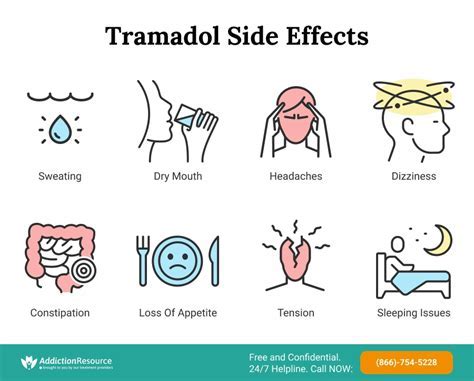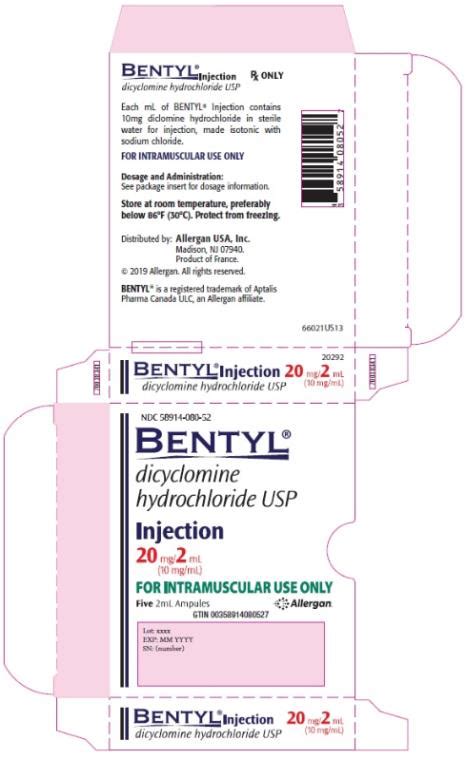Intro
Discover the potential side effects of Bentyl, including drowsiness, dizziness, and constipation. Learn about long-term effects, interactions, and warnings to ensure safe usage and minimize adverse reactions.
The importance of understanding side effects cannot be overstated, especially when it comes to medications like Bentyl, which is used to treat various gastrointestinal disorders. Bentyl, also known by its generic name dicyclomine, is an anticholinergic medication that helps in relieving spasms of the stomach and intestines. However, like any medication, Bentyl can cause a range of side effects, some of which may be mild and temporary, while others can be more severe and require medical attention.
It's crucial for patients to be aware of these potential side effects to ensure they can manage their condition effectively while minimizing any adverse reactions. The side effects of Bentyl can vary from person to person, depending on factors such as the dosage, the duration of treatment, and individual tolerance to the medication. Healthcare providers play a vital role in educating patients about what to expect and how to manage side effects, but it's also important for patients to be proactive in monitoring their health and reporting any concerns.
Understanding the side effects of Bentyl is not just about recognizing the symptoms; it's also about knowing how to mitigate them and when to seek help. By being informed, patients can work more effectively with their healthcare providers to adjust their treatment plans if necessary, ensuring they receive the best possible care for their condition. Whether you're considering Bentyl as a treatment option or are already taking it, being aware of its potential side effects is a critical part of managing your health and making informed decisions about your care.
Common Side Effects of Bentyl

Bentyl can cause a variety of common side effects, many of which are related to its anticholinergic properties. These can include dry mouth, dizziness, blurred vision, and constipation. Some patients may also experience nausea, vomiting, or an unpleasant taste. While these side effects can be uncomfortable, they are often temporary and may diminish as the body adjusts to the medication. However, if these symptoms are severe or persistent, patients should consult their healthcare provider for advice.
Less Common Side Effects
In addition to the common side effects, some patients may experience less common but potentially more serious side effects. These can include urinary retention, rapid heart rate, or confusion. Elderly patients may be more susceptible to these effects due to decreased metabolism of the drug and the potential for interactions with other medications they may be taking. It's essential for patients and their caregivers to be vigilant for any signs of these less common side effects and to seek medical attention if they occur.Severe Side Effects of Bentyl

While rare, Bentyl can cause severe side effects that require immediate medical attention. These include allergic reactions, which may manifest as hives, itching, swelling, or difficulty breathing. Other severe side effects can include severe constipation leading to bowel obstruction, especially in patients with a history of intestinal obstruction. Additionally, Bentyl can exacerbate conditions like glaucoma, and patients with this condition should be closely monitored.
Managing Side Effects
Managing the side effects of Bentyl involves a combination of preventive measures, lifestyle adjustments, and, in some cases, medical interventions. For example, to combat dry mouth, patients can suck on sugar-free candies or chew sugar-free gum to stimulate saliva production. Staying hydrated by drinking plenty of water can also help. For gastrointestinal side effects like constipation, increasing fiber intake and engaging in regular physical activity can be beneficial. In cases where side effects are severe or persistent, healthcare providers may need to adjust the dosage or switch to a different medication.Special Considerations

Certain groups of patients may require special considerations when taking Bentyl. For instance, elderly patients may need lower doses due to age-related decreases in renal function and the potential for drug accumulation. Pregnant or breastfeeding women should use Bentyl with caution, as there is limited information on its safety in these populations. Additionally, patients with underlying medical conditions, such as heart disease, high blood pressure, or benign prostatic hyperplasia, should be closely monitored, as Bentyl can exacerbate these conditions.
Interactions with Other Medications
Bentyl can interact with other medications, either by enhancing their effects or increasing the risk of side effects. For example, combining Bentyl with other anticholinergic medications can increase the risk of adverse effects like dry mouth, constipation, and confusion. Patients taking Bentyl should inform their healthcare provider about all the medications they are taking, including over-the-counter drugs and supplements, to minimize the risk of interactions.Long-Term Use of Bentyl

The long-term use of Bentyl requires careful consideration, as prolonged exposure to anticholinergic medications can lead to dependence and withdrawal symptoms upon cessation. Furthermore, long-term anticholinergic use has been associated with an increased risk of cognitive decline and dementia in elderly patients. Therefore, Bentyl should be used for the shortest duration necessary to treat the condition, and patients should be regularly assessed for the need for continued therapy.
Withdrawal from Bentyl
If Bentyl is suddenly stopped after long-term use, patients may experience withdrawal symptoms, which can include dizziness, nausea, and headache. To minimize the risk of withdrawal, healthcare providers may gradually taper the dose over a period of time. Patients should not stop taking Bentyl without consulting their healthcare provider, as this can lead to unnecessary discomfort and potentially severe withdrawal symptoms.Conclusion and Next Steps

In conclusion, while Bentyl can be an effective treatment for gastrointestinal disorders, it's crucial for patients to be aware of its potential side effects and to work closely with their healthcare providers to manage them. By understanding the common, less common, and severe side effects of Bentyl, as well as special considerations and the risks associated with long-term use, patients can make informed decisions about their care and minimize the risk of adverse reactions.
What are the most common side effects of Bentyl?
+The most common side effects of Bentyl include dry mouth, dizziness, blurred vision, and constipation. These side effects are usually mild and temporary but can be uncomfortable.
Can Bentyl be used in elderly patients?
+Bentyl can be used in elderly patients but with caution. Elderly patients may be more susceptible to the side effects of Bentyl due to decreased metabolism and potential interactions with other medications.
How can I manage the side effects of Bentyl?
+Managing the side effects of Bentyl involves a combination of preventive measures, lifestyle adjustments, and medical interventions. Patients can combat dry mouth by sucking on sugar-free candies, increase fiber intake to manage constipation, and stay hydrated by drinking plenty of water.
We invite you to share your experiences or ask questions about Bentyl and its side effects in the comments below. Your input can help others better understand this medication and its implications. Additionally, if you found this article informative, please consider sharing it with others who might benefit from this information. Together, we can create a more informed and supportive community for those managing gastrointestinal disorders and other health conditions.
